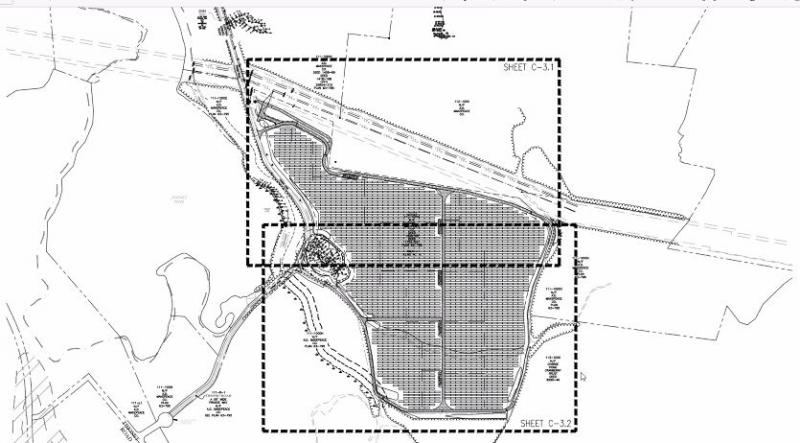Conservation activists, Herring Pond Wampanoag president speak out against solar farm
Activists from several conservation groups and the President of the Herring Pond Wampanoag Tribe spoke out against a proposed solar project, saying it would cause irreversible damage to the environment.
At the Feb. 3 Conservation Commission meeting, no representatives of the proposed Borrego solar field were present. The project, set to be located at 140 Tihonet Road, is one of three large arrays planned for land owned by A.D. Makepeace. The three projects total roughly 180 acres in size.
The project has not yet received final approval from the Planning Board, and will be headed for a hearing in front of the Massachusetts Environmental Protection Agency.
Activists argued that the solar fields would destroy the habitats of many plants and animals, and would create polluted storm water run-off that would flow into rivers and streams.
Melissa Ferretti, the President of the Herring Pond Wampanoag Tribe, said that her community is continuing the work of their ancestors to protect the natural world and oppose climate change.
“The homeland of tribal nations in the United States are among those communities most likely to be targeted for projects that are disastrous for the environment and have multiple destructive impacts on Indigenous peoples’ lives,” Ferretti said. “The Herring Pond Wampanoag Tribe knows this because we have been at the ground zero of colonial resource extraction for over 400 years.”
Ferretti said that, legally, the tribe should be consulted when “human activities harm our ancestral lands and our heritage.”
“We know that the land, the water,and the wildlife are our relatives to whom we have a responsibility. Most importantly, we have a responsibility to our tribal youth to ensure that they and their children inherit a planet that is nurtured by us,” Ferretti said.
Frank Mand of the Southeastern Massachusetts Pine Barren Alliance said that the Massachusetts pine barren coast -- a “globally rare ecoregion” stretching from Plymouth and Duxbury onto the Cape and Islands -- is already fragmented by development and under increasing pressure.
He said that his group has been working on tools to determine appropriate sites for solar development that minimize the ecological impact. Mand said that the area’s deep aquifer is put into jeopardy by the projects, especially as more are approved.
“If individual boards -- Planning Boards, Appeal Boards, Conservation Commissions -- don’t find a way to understand they’re protecting their communities, and therefore there must be some way within their regulations [to block these projects], then we are lost,” Mand said. “And Wareham is being dumped on. A.D. Makepeace, which prided itself as the wonderfully balanced, nature considerate development corporation has completely given up that claim, and they are just devastating your community.”
Meg Sheehan of the Land and Water Coalition said she found a lot of “inaccuracies and misinformation” in the reports about the proposed solar fields’ environmental impacts submitted by civil engineering and environmental firm Beales and Thomas. Sheehan argued that the company should have submitted reports about the projected impacts on all rare and endangered species in the area, and said the report’s conclusions about water quality were incorrect.
“They imply that the water that they’re going to be discharging all this run-off to is of high quality when the EPA reports show that this is some of the most degraded water in your town,” Sheehan said. “The Agawam River, Wankinko, Tihonet Pond -- These are degraded watersheds and waterways. That means they’re already polluted. They’re telling you it’s clean and so their pollution isn’t going to make a difference.”
Additionally, Sheehan said, there are three solar projects upstream in Carver that will also stress the waterways.
“I’m just really concerned about the scale of this project,” said Joe Falconeiri, noting that the land in question is categorized as a critical natural habitat by the state. “This is major destruction to Wareham’s ecological integrity, and it’s not a joke.”
Falconeiri said that the solar field, which is located on a slope, could be detrimental to “a whole gambit of things” including herring fisheries and biodiversity in the Wareham River.
The hearing was continued to Feb. 17.












